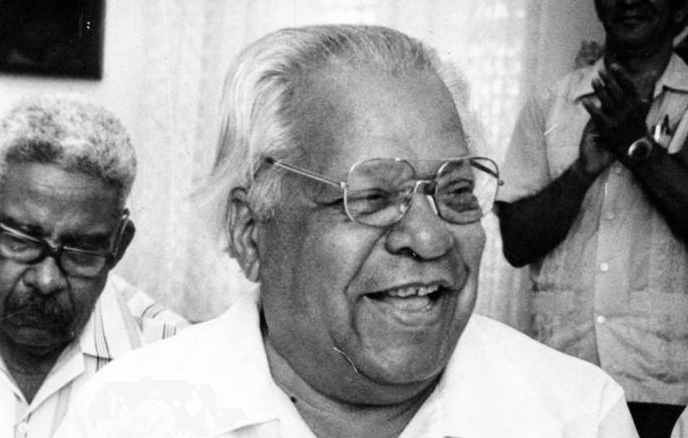Do you know who is the Cuba National Poet? In the heart of the Caribbean, where culture and history converge, stands Cuba—a land of rich traditions, vibrant colors, and artistic expression. One of its most celebrated sons, Nicolás Guillén, embodies the essence of Cuban identity through his poetic brilliance. From the sugarcane fields to the bustling streets of Havana, Guillén's verses resonate with the rhythms of his homeland, capturing the struggles, aspirations, and soul of the Cuban people.
Nicolás Guillén, a luminary in the realm of poetry, serves as Cuba's national poet, encapsulating the spirit of his country in his verses. His compositions are not mere words; they are intricate tapestries woven with the threads of history, culture, and the fervor of a nation.
Early Life and Influences on Cuba National Poet
Born in 1902 in Camagüey, Cuba, Guillén grew up amid the sugarcane fields and the echoes of African rhythms that would later infuse his poetry. His upbringing in a diverse and vibrant community planted the seeds of inspiration that would shape his unique perspective.
The Poetic Journey of Cuba National Poet
Childhood Inspiration
From a young age, Guillén exhibited an affinity for language and a keen observation of the world around him. His early encounters with the hardships faced by the laborers in the sugarcane fields left an indelible mark on his consciousness, sowing the seeds of empathy that would permeate his poetry.
Embracing Afro-Cuban Heritage
Guillén's embrace of his Afro-Cuban heritage was a pivotal moment in his artistic evolution. He delved into the rich tapestry of African cultural traditions, infusing his verses with the beats of drums and the melodies of Santería chants.
The Literary Significance of Cuba National Poet
“Motivos de Son”
One of Guillén's seminal works, "Motivos de Son," exemplifies his ability to interweave colloquial language with profound social commentary. Through vivid imagery and rhythmic cadence, Guillén portrays the essence of Cuban life, from the exuberant dances to the struggles of the marginalized.
“Balada de los dos abuelos”
In this poignant poem, Guillén explores the complexities of his biracial heritage, paying homage to both his African and Spanish ancestry. The poem's refrain, "Tengo un abuelo mulato, / tengo un abuelo blanco" ("I have a mulatto grandfather, / I have a white grandfather"), resonates with the intricacies of identity in a diverse society.
Nicolás Guillén’s Impact on Cuban Society
Guillén's poetry acted as a catalyst for social change, advocating for equality and justice in a society grappling with the shadows of colonialism. His words became a rallying cry for those who sought to dismantle the oppressive structures that had long plagued Cuba.
Cuba National Poet: International Recognition and Influence
A Global Ambassador of Poetry
Guillén's artistry transcended national borders, earning him acclaim on the international stage. His eloquence in portraying the universal struggles of the human experience forged connections with audiences far beyond the shores of Cuba.
Guillén’s Enduring Legacy
The legacy of Nicolás Guillén continues to thrive, inspiring successive generations of poets, musicians, and activists. His profound impact on art, literature, and social consciousness is a testament to the enduring power of words.
Cuba National Poet: Themes and Styles
Social Justice and Equality
Guillén's verses echo with calls for social justice, condemning oppression and championing the rights of the marginalized. His poetry serves as a testament to the enduring fight for equality, resonating with those who continue to challenge injustice.
Celebrating Afro-Cuban Culture
At a time when cultural heritage was often suppressed, Guillén celebrated the beauty of Afro-Cuban traditions. His verses pay homage to the resilience and contributions of Afro-Cubans, enriching the cultural tapestry of the nation.
FAQs about Nicolás Guillén
- What are some of Nicolás Guillén's most famous poems?
Some of Guillén's most renowned poems include "Motivos de Son," "Balada de los dos abuelos," and "Tengo."
- How did Nicolás Guillén contribute to the advancement of civil rights?
Guillén's poetry shed light on social injustices, advocating for equality and inspiring others to join the struggle for civil rights.
- What distinguishes Guillén's poetry from other Cuban writers of his time?
Guillén's poetry uniquely blends Afro-Cuban cultural elements with social commentary, creating a distinct and powerful voice.
- How did Nicolás Guillén's Afro-Cuban heritage influence his work?
Guillén's Afro-Cuban heritage deeply influenced his themes, rhythms, and perspectives, infusing his poetry with a rich cultural mosaic.
- What impact did Nicolás Guillén have on the international literary community?
Guillén's work transcended borders, fostering cross-cultural connections and inspiring poets and thinkers around the world.
Conclusion
In conclusion, Nicolás Guillén's poetry is a luminous thread woven into the fabric of Cuba's cultural heritage. His words resonate with the pulse of the nation, celebrating its diversity, decrying injustice, and inspiring hope. Through the rhythm of his verses, Guillén immortalized the soul of Cuba, leaving an indelible mark on the world of literature and beyond.
References
- Bell, L. A. (2007). Cuba: Literature and Language. In Encyclopedia of Latin American History and Culture (2nd ed., Vol. 2, pp. 403-405). Charles Scribner's Sons.
- Cabrera, L. (1999). Afro-Cuban Folklore: An Introduction. University of Miami Press.
- Enciclopedia Cubana. (n.d.). Guillén, Nicolás. Retrieved from http://www.encaribe.org/Article/guillen-nicolas
- Janney, S. (2010). Nicolás Guillén and the Poetic Revolution. University Press of Florida.
- Lima, A. D. (2002). The Construction of Blackness in the Poetry of Nicolás Guillén. In: Blacks, Mulattos, and the Dominican Nation. Palgrave Macmillan.
